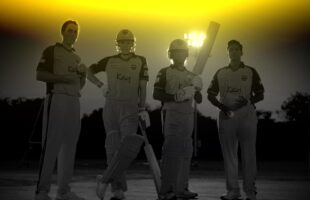Re-invention seems to be the key word for many factual channels we speak to. Just look at the two news channels featured in this issue. In January, BBC World News begun news broadcasts from a stateof- the-art HD-ready facility in Central London, while closer to home, MediaCorp’s Channel NewsAsia opened a new studio in the heart of Singapore’s financial centre to strategically report business news from where it matters. Both are investing in new facilities that will bring forth exciting possibilities. Both have trumpeted that the hardware will result in new “heartware” – a new philosophy of reporting about the world that translates into better coverage at greater speeds, and not forgetting, across multiple devices.
I was privileged to have visited BBC’s New Broadcasting House in Central London a week after they launched. There is excitement abuzz as one tours the facility, but beyond that, I sense from the organisation, a greater motivation to deliver the news better, and faster, and in more exciting ways than before. All this comes amidst the domestic and international arms of the BBC (more so the former) grappling to recover from a scandal that has betrayed the public’s trust, a trust badly in need of repair.
Still on factual programming, the Asian Side of the Doc (ASD), now in its fourth term, kicks off this March in Kuala Lumpur, Malaysia. ASD appears to be possibly the only content event that is up and running in the nation’s capital this March, which cannot be said of the Kuala Lumpur Communications & Creative Industry Mart (KLCCIM) and an associated film festival, the International Film Festival Malaysia (IFFM). Both events had been touted, promoted, and publicised by the Malaysian government and subsequently postponed not once, but twice!; signalling some internal issues in need of serious attention. All that and more will be summarised in our regular Country Focus where Malaysia takes the spotlight. Has the Malaysian government delivered on its promises and “goodies” handed out last year? We find out.
Even though “Content is King”, the discussions on the new HD formats 4K and 8K that have circulated among members of the technology side of the industry in recent years are now creeping over to the content side. Do we care? Should we care? If the latest conference programme for MIPTV 2013 is anything to go by (the 3D tracks have been dropped in favour of discussions in 4K), it’s probably time we start asking questions like: “What kind of clarity of image are we looking for and at what resolution?” What about 3D? Passé, passable, or still possible? I asked what the leader in 4K/ 8K, NHK thinks; plus I interviewed John Morris of UK-based Atlantic Productions on the company’s success with 3D content and its outlook for 3D content in television. Whatever the outcome, even if “Content is King”, we now find ourselves deciding what this “king” should “wear”. Let the debate begin.







